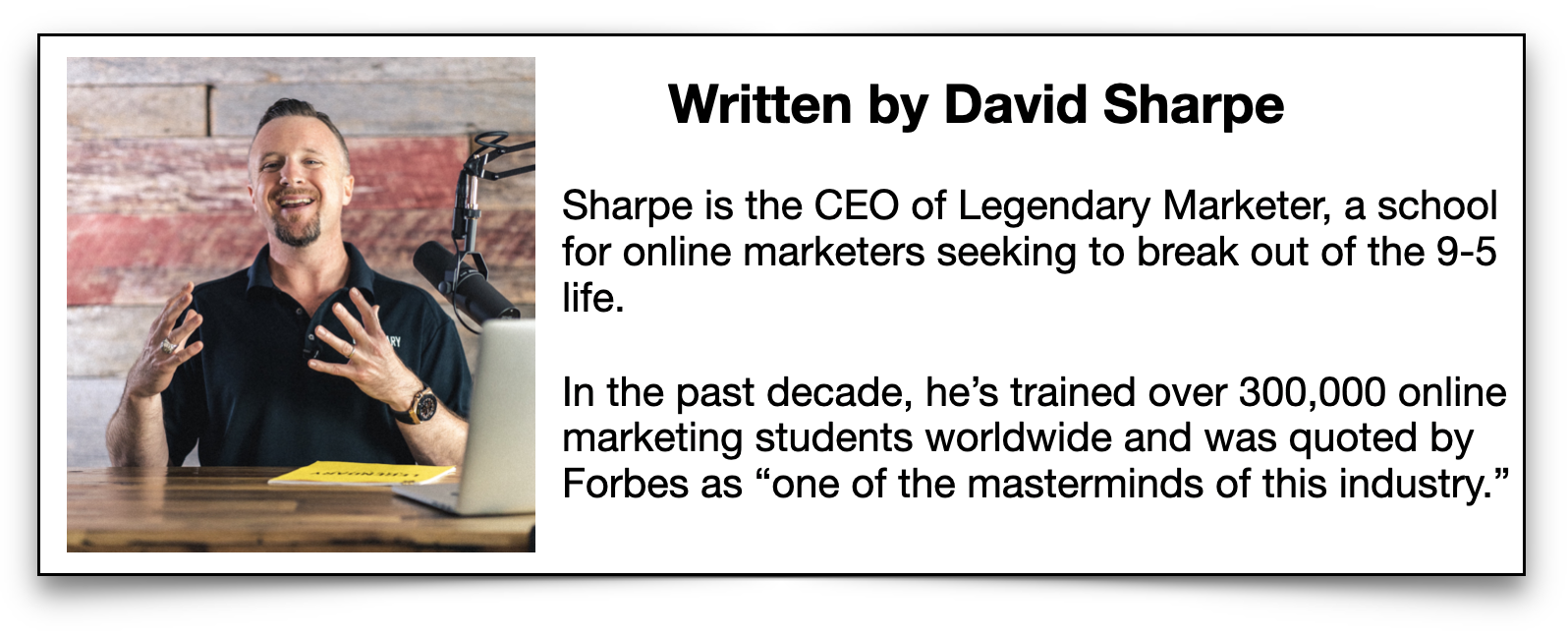
64% percent of people rely on search engines to make a purchase decision.
Search engines play a big role in your small business' online traffic generation. If you are going to appeal to, then you need to utilize Search Engine Optimization (SEO).
SEO is the process of developing your online profile so that customers can easily find your business. While SEO is useful, the landscape around it changes rather often.
If you want to improve the success rate of your SEO for small business strategy, you must employ techniques that are up to date. Here are some ways you can work on your search engine optimization to get your customers to notice you.
1. Know Your Audience
The end goal of your search engine optimization strategy is to create compelling content that your target audience can discover.
Since that is the objective, you need to know who you are targeting to figure out how to best communicate to them. You have to understand exactly how your customers run searches on the web and the things they are looking for.
One way you can learn more about your audience is by studying the kind of content they like getting from you.
When you publish new material you can use online tools such as Google Analytics to give you more insight. That can be especially useful when picking future topics to write about.
Other insights you will get to find out include:
● The topics that get more readers and views (in the case of videos)
● What pages your audience spends more time on
● How many users come through social referrals
Social media platforms also have their own analytics tools that can help you gain insights into how you can better serve your users.
2. Page Speed Is Key in SEO for Small Businesses Strategies
One of the more surprising tips for entrepreneurs is that your page speed impacts how well you rank.
Page speed refers to the amount of time a user has to wait until a page on your website completely loads.
Google is on record saying that its algorithms use page speed to determine where you rank among other things. You, therefore, can't afford to ignore it.
One of the SEO best practices you can use to increase your page speed is to compress your files.
Look for software that can reduce the size of files on your website. You can use such software to reduce CSS, HTML, and JavaScript files on your website.
When it comes to images, use programs like Photoshop where you can better control the quality.
Another idea here is to reduce the number of times your page redirects users to another one. For every instance where that happens, your page will take longer to load.
Whenever you use images, understand that they also contribute to how fast your page loads. Use the PNG format for graphics and JPEG when uploading photos.
Don't forget to compress them to improve speed times. However, watch out that you don't lower their quality.
3. Use Evergreen Content
At the heart of your SEO efforts is the kind of content you use. When you use content that doesn’t appeal to your customers you will keep struggling no matter how well you tweak it.
It is important to use content that never loses its appeal.
Evergreen content is material that remains useful and relevant for a long period of time with little maintenance.
If you do it right, this kind of content will keep generating social shares, traffic, and occupy high positions in search rankings for a long time.
So, how do you create evergreen content?
Firstly, your content has to give your audience value while still being compelling.
Secondly, your content should have a heading that attracts the user's attention. Lists or ‘how-to' headlines tend to be the most popular. They advertise the content in a striking manner while suggesting that the material is easily readable.
Thirdly, your content should pass the ‘long-click' test for it to be evergreen. Whenever a searcher clicks on the link Google tracks the amount of time that goes by before they move on to the next link.
If they click your link and spend some more time on the page, Google interprets this as good material that has satisfied the searcher's query.
3. Keywords, Keywords, and Keywords
If you have ever made efforts to grow a business, the concept of keywords is not new to you.
Keywords are a mission-critical part of SEO as they directly influence how searchers find content.
When you want to determine keywords to use for your SEO marketing, you should start by doing some keyword research. Here, you look for the terms people use when they are searching for a particular subject matter.
Proper keyword research is useful in that it can either help you improve existing content or create relevant, new material.
Begin by identifying a primary keyword to use. Ensure it is a popular term to target a wider user base.
Whenever you're using the keywords you need to learn how to best apply them. Keywords should feature in the page title, a subheading, images, your meta descriptions and in the content.
Avoid overusing them (known as keyword stuffing) as Search engine algorithms torpedo your ranking if they detect any stuffing.
5. Craft Succinct Title Tags
A title tag is the main part of a search result listing that has a bigger font.
Title tags are the very first thing that searchers see about your business. They set the tone for what they should expect. A lot of attention and ingenuity has to go into creating them.
When you are creating title tags you need to make them clear. A good title tag is one in which a searcher knows what the content is about at a glance. A clear and accurate title tag not only communicates to searches, but it also signals to the search engine what the particular page is about.
Search engines limit the number of words in a title tag. You, therefore, need to learn the art of tweaking it to display all you want it to.
Generally, the limit will be between 60-80 words. You should target 50 words to ensure most of it is visible on different devices.
A good title tag starts with the most descriptive words or main keywords since it's unlikely they will be cut off. If you decide to include your brand name, place it at the end after the words describing what the page is about.
Remember to not overuse your target keyword in the title tag.
A title tag essentially gives you a chance to make a case for what your page is about. Since you have a very brief window, you need to emphasize to the searcher the value your page gives them.
6. Establish Authority
One of the primary goals a search engine is built to achieve is connecting users to the most authoritative information. Therefore, the algorithm works to find the most credible sources of information.
When a user runs a search query they expect the search engine to work as a librarian and find the correct information. Your content needs to show up at this point for it to draw in the target audience.
Creating top-notch quality content is one way in which you can increase the authority of your page and hence, the ranking.
The other way to establish authority is through links. There are two types of links; external links and internal links.
Internal links are those that connect different web pages of the same website.
When external links from sites with high credibility point to your website, its authority ranking will increase.
Similarly, many internal links pointing to a page signal to the search engine that it is an important page. That can improve its authority level.
External links provide more boost to your authority level than internal ones. The common practice is to use both when fashioning your content.
No matter what you do remember that it is not the number of links that is the primary factor. It is the quality of the links that should come first.
7. Ask for Customer Reviews
Reviews today have moved the word-of-mouth trust element to the internet space. As a small business, you should make it a habit to encourage your users to leave reviews online.
When a user runs a search, the local firms that have reviews received higher ranking in the SERPs.
One of the most essential reviews that Google uses to rank pages is Google Reviews. You should set up your business' Google My Business listing’ then get reviews to bump your ranking up.
Help Your Customers Better Find Your Business
Search engines have grown to become a powerful influence on customer behavior. People look for information to make decisions in their ‘I-want-to-buy' moments.
Your business must adapt and create a set of SEO for small business strategies that will contribute to its expansion and increase in revenue.
Legendary Marketer is on a mission to help you start or grow your business. To learn more marketing secrets and learn how to bring in more profit to your business watch this free video and learn our #1 recommended way to bring in income and grow your business.







